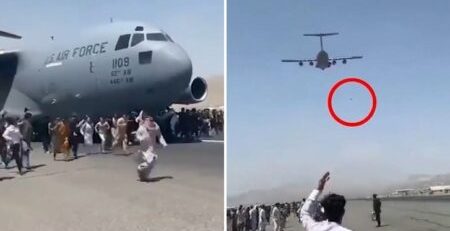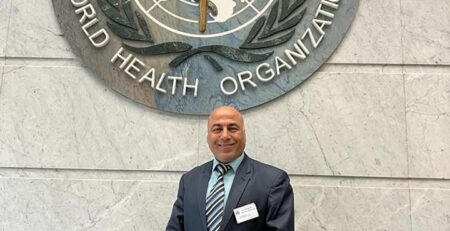Montreux Convention and the Turkish Calculations
Dr. Ali Nazli- PhD in Political Science and International Relations.
The Turkish decision to implement the Montreux Convention is considered surprising for many parties, whether direct or indirect, regarding the conflict between Russia and Ukraine, because of the importance of the Turkish decision on the course of the ongoing escalation, as well as on the increasing alignment and pivot, which takes a major turn in the current and upcoming period between the two poles of the world led by The United States of America and Russia.
The Montreux Convention was concluded in 1936, according to which Turkey was granted the right to control the Turkish Bosporus and Dardanelles straits and to regulate the transit of war and civilian ships through them. Turkey relied on the power granted by the agreement and which allows it, during wars, to prevent the passage of warships to the parties to the conflict, while the exception is in the case of returning these ships to its ports without restricting the freedom of passage through the straits.
In the same context, this decision may not be considered surprising, as the observer of the political behavior of the Turkish President Recep Tayyip Erdogan and his charismatic leadership in taking many important decisions related to the person of the president himself. Also, the decision-making process does not ignore the surrounding objective factors, which is the study of the real environment in its two dimensions; the internal environment and the external environment. As well as what will be achieved after the decision is made. Turkey’s decision to close the strait was not an easy decision, especially since the region lives on hot tin and quicksand; the options are not easy, but this decision was required within the framework of Turkey’s moral and ethical harmony and alignment with the international system with its general orientation, which is the rejection of aggression and war against the countries and people of the world because as it is considered a violation of international law. Moreover, Turkey has previously taken important and bold decisions, including not allowing US and Western planes to launch raids on Iraq from Turkey.
The war on Ukraine caused a clear confusion in the statements and actions of decision-makers in Europe and America, which was represented in the weakness of the statements and their confusion some times, which was understood in the context of breaking the prestige of Ukraine’s allies against Russia, which increased the Russians’ appetite for developing and strengthening aggression against Ukraine and the invasion and demolition of major cities. This made the European Union take an unprecedented decision regarding its traditional foreign policy which is to it openly supply Ukraine, which is outside the EU, with weapons.
Since the beginning of the crisis, Ukraine has publicly requested, through its president and ambassador in Ankara, the necessity of preventing the use of Russian warships and submarines to the Bosphorus due to the Russian attacks and war on Ukraine, under the Montreux Convention. During then Turkey has reservations because what was happening was only in the context of conflict and disagreement between the two countries and not a war. Yet, with the intensification of the crisis and the major attack launched by Russia on Ukraine, Turkey described the Russian invasion as a war. Moreover, President Erdoğan considered the Russian attack on Ukraine unacceptable and criticized the West and NATO that were only giving advice. HE stressed that Turkey is a member of NATO and has been and continues to perform all its duties and tasks in full within the alliance. Erdogan said that they are determined to use their powers stemming from the Montreux Convention in a way that prevents the escalation of the crisis. The Russian attack was considered the largest launched by one country against another in Europe since the beginning of World War II. Foreign Minister Mevlüt Çavuşoğlu said that Turkey had informed the countries bordering the Black Sea and those that are not bordering the Black Sea to stop the passage of warships through the Bosphorus Strait, in a clear indication of preventing the passage of Russian ships and submarines through this strait.
Many countries, including Ukraine, America and Europe, praised the Turkish position, which angered Russia, as it did not expect Ankara to act in this way without prior arrangements with it. In fact, the matter is not easy with its repercussions on Turkey from Russia, with which the relationship is of great importance to the trade exchange, which amounts to about 20 billion dollars, as well as the tourism exchange and the purchase of the Russian S400 system. As the Russian-Turkish rapprochement in some stations was caused by the clear contradiction with America and Europe, which turned its back on Turkey in many different stations and stages; historically, there have been about 17 wars between the Turkish Republic and the Russian Federation.
Yet, since the Justice and Development Party came to power in Turkey in 2002 and raised the slogan of zeroing problems with neighboring countries and the region and thawing the ice in the relationship between Russia and Turkey, the reality is witnessing understanding and contradiction in the relationship between the two countries. For example, the contradiction in the regions of the Caucasus, the Middle East, Central Asia and the Black Sea, where Ankara accuses Russia as well as America of supporting terrorist organizations such as the YPG/PKK. In turn, Russia considers that Turkey has breached its agreements in Syria, specifically in Idlib, due to the sensitivity of the Syrian file to Russia. As well as many files in which the dispute occurred, such as the Syrian file, the Libyan file, and finally the Ukrainian file, after the Ukrainian president’s visit to Ankara and the signing of a number of agreements, including military agreements, as well as Poland’s purchase of Turkish planes. Turkey is trying to contain the contradiction and operates within the framework of a competitive cooperation approach rather than a conflict. Especially since Turkey is about to hold general elections within a year, the internal calculations and foreign policy are in a delicate balance, and they are like those who walk on the land of thorns.












Leave a Reply